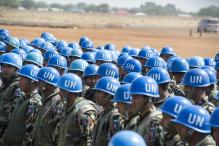Mediation and UN sanctions are two essential policy instruments used by the United Nations in its efforts to prevent and resolve conflict. These two tools are almost always deployed in conjunction, although the degree of their overlap in time and the sequencing of their application vary. The project “UN Sanctions and Mediation Establishing Evidence to Inform Practice” (a.k.a “SMP 1.0”) established an initial evidence baseline on how these tools interact and identified instances of complementarity and complication. Moreover, SMP 1.0 brought the sanctions and mediation expert communities together to begin to build a common knowledge base and to overcome entrenched misunderstandings.
As an immediate follow-on from SMP 1.0, UN Sanctions and Mediation 2.0: Moving From Evidence to Impact seeks to achieve two broad goals: first to help translate the evidence established through SMP 1.0 into more effective policy and practice and second, to continue to bridge the gap between the sanctions and mediation communities through awareness raising, support and training. SMP 2.0 proposes to do this through a three-pronged approach: policy uptake and substantive advice, training and assistance and dissemination and research.



